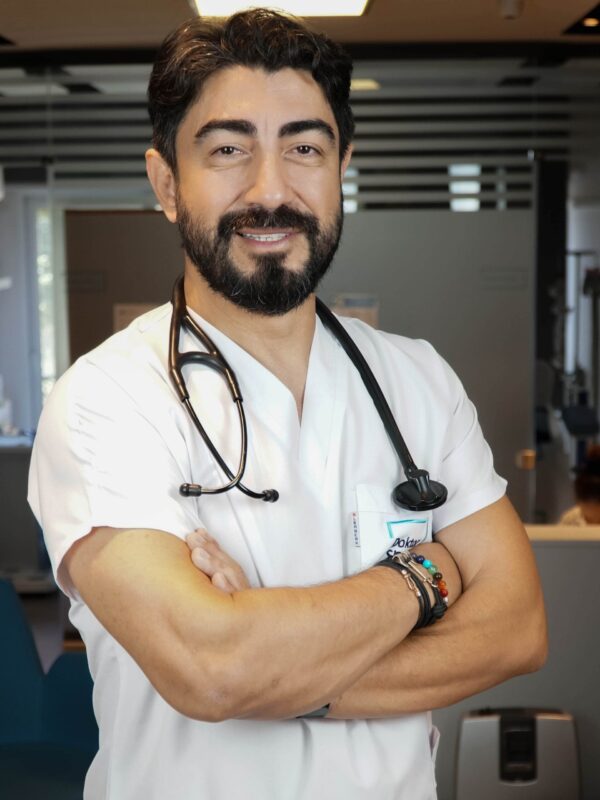Functional Medicine
Functional Medicine
What is functional medicine?
Functional medicine is a holistic medicine approach that focuses on investigating the root causes of diseases and correcting these causes. It also includes preventive medicine practices applied to make healthy life sustainable. Focusing on root causes provides a significant improvement in the quality and comfort of life, especially in chronic diseases.
The functional medicine approach is a scientific and evidence-based approach. It stands out with its individuality, handling the patient as a whole and its permanent effect.

What is not functional medicine?
Functional medicine is not an alternative approach to classical medicine; On the contrary, it is a supportive approach. As a matter of fact, while classical medicine adopts an approach specific to a disease, organ or system, functional medicine makes it possible to look at it from a broader perspective by dealing with the subject in a much more comprehensive way.
In conclusion, functional medicine: patient-centered, not disease-focused; system-oriented, not organ-oriented; the treatment of the diagnosis is not focused on the treatment of the root cause.
What is the mechanism of functional medicine?
Functional medicine; it also uses known medical scientific data such as biochemistry, physiology, genetics, biology, microbiology and toxicology, but considers these data with a holistic perspective. The most important points that distinguish functional medicine from the classical medicine approach; It is based on the patient, not the disease, focusing on the triggering factors that underlie the diseases rather than diagnosing the disease, and accepting the patient as a whole and aiming to heal the whole physiologically, mentally and spiritually instead of a specific disease.
In functional medicine, the person is evaluated as a whole. In this direction, genetic, environmental and lifestyle-related factors that affect the disease-health status of the person are taken into consideration.
In the center of the functional medicine approach, the immune system is located in the axis of the intestines, whose importance has increased in recent years with the discovery of nutrition, lifestyle, environmental factors and microbiota.
Functional medicine requires teamwork. The indispensable parts of this team are, of course, a functional medicine physician, a functional medicine dietitian and the patient in active cooperation. Nutrition programs, like treatment programs, are planned individually in line with the functional medicine perspective.
The concept of “idiopathic” (the cause of which is unknown), which is often used in classical medicine, is not used in functional medicine.
Which treatments are applied under the umbrella of functional medicine?
- Creating a healthy eating program
- Maintaining hormonal balance
- Eliminate inflammation
- Regulate the digestive system
- Provide detoxification
- Strengthen the immune system
- Calm the mind
It is among the goals of functional medicine.

Traditional and complementary treatment methods such as acupuncture, bioresonance, ozone, mesotherapy, cupping, phytotherapy, homeopathy, nutritional counseling are mostly used in functional medicine. In functional medicine treatments, priority is given to personalized healthy nutrition planning. By using vitamins, minerals and nutritional supplements, it is aimed for the patient to get rid of chronic disease drugs.
What does functional medicine promise?
Functional medicine promises you a healthy and balanced recovery. From the point of view of functional medicine, it systematically promises a cure by finding the root causes of the disease rather than the result, that is, the root causes of the disease rather than the symptom. In functional medicine, chemical drugs are either minimal or nonexistent. It heals you by finding the root causes of the disease and treating these causes. This is the general approach of functional medicine.
Frequently Asked Questions About Functional Medicine
Is bioresonance a definitive treatment for various diseases? Can a guarantee be given?
It is not correct to give any guarantees regarding health. As there is no guarantee of anything in life, we advise our patients not to rely on statements such as "100% sure treatment", "guaranteed results", "treatment guarantee".
Can the bioresonance method be used simultaneously with the treatment according to classical medicine?
Yes, it can be used. There is no harm in applying bioresonance therapy before or after surgery, before, during and after drug therapy or different therapy methods. On the contrary, it can help increase the effectiveness of methods such as chemotherapy and radiotherapy, while helping to reduce or even eliminate unwanted side effects.
How much are the fees?
The treatment plan is determined individually. The duration, frequency of the sessions and the program to be applied are planned completely individually. Therefore, the duration of treatment varies accordingly.
How long is the treatment period?
The treatment plan is determined individually. The duration, frequency of the sessions and the program to be applied are planned completely individually. Therefore, the duration of treatment varies accordingly.
